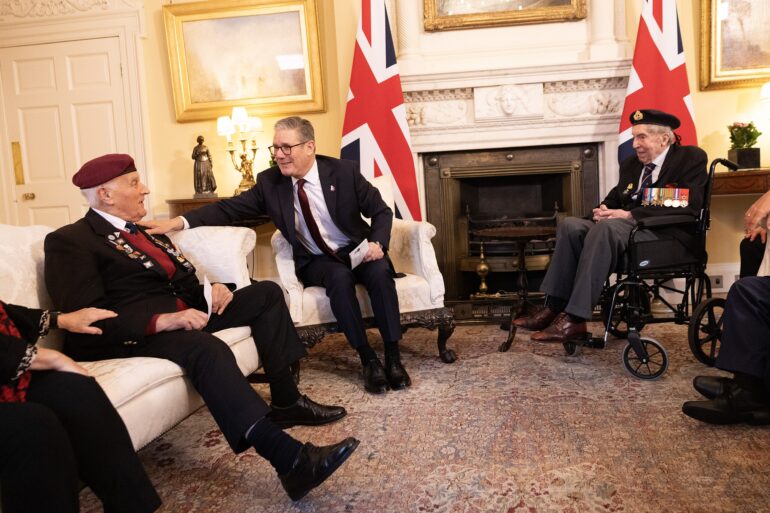Alec Penstone, a 100-year-old Royal Navy veteran who braved the seas during the D-Day landings, has delivered a searing rebuke of modern Britain, declaring that the country his generation fought to save no longer embodies the values for which they sacrificed.
Appearing on “Good Morning Britain,” Penstone’s voice trembled not with age, but with sorrow. “I can see in my mind’s eye those rows and rows of white stones — all the hundreds of my friends who gave their lives,” he said. “For what? The country of today? No, I’m sorry, but the sacrifice wasn’t worth the result of what it is now.”
Penstone’s words cut through the usual platitudes of remembrance. At fifteen, he joined the Royal Navy, later serving on the HMS Campania, where he swept for mines and hunted German U-boats under constant threat of attack. He returned home one of the “lucky ones,” built a life with his wife Gladys, and watched Britain rebuild from the rubble of war. Now, from the vantage of a century, he sees a nation unrecognizable to the one that once stood defiant against tyranny.
'What we fought for was our freedom, even now [the country] is worse than it was when I fought for it,' says 100-year-old World War II Veteran Alec Penstone. pic.twitter.com/M9HSsS5sIW
— Good Morning Britain (@GMB) November 7, 2025
“What we fought for was our freedom,” he said. “But now it’s a darn sight worse than when I fought for it.”
His despair reflects a growing sentiment among older Britons who feel that the country has lost its moral compass — and its pride. Earlier this year, under the Labour government of Prime Minister Keir Starmer, portraits of Winston Churchill and the Duke of Wellington were quietly removed from Parliament. According to GB News, the purge extended across Westminster, even stripping Churchill’s image from Portcullis House, where he was once photographed standing solemnly at the Cenotaph in 1945.
For Penstone’s generation, Churchill represented courage, sacrifice, and the defense of liberty itself. For today’s political class, he seems to represent an uncomfortable past. The removal of his likeness — and the erasure of Britain’s wartime legacy — feels to many like a rejection of the very principles that sustained the nation through its darkest hours.
The sense of decay extends beyond symbolism. Starmer’s government has faced mounting criticism for refusing to confront the sexual exploitation of young girls by grooming gangs, dismissing calls for accountability as pandering to “far-right” sentiment. When entrepreneur Elon Musk criticized the government’s response to the scandal, Starmer accused him of spreading “misinformation.” Musk fired back: “What an insane thing to say!” accusing the prime minister of ignoring “vast numbers of little girls and their parents” for political expediency.
To men like Penstone, who risked everything so truth and freedom might endure, such evasions strike at the heart of what Britain once stood for. His grief is not nostalgia, but recognition — that courage has been replaced by cowardice, and honor by convenience.
The white stones still stand, silent and steadfast, reminders of a generation’s ultimate sacrifice. But the Britain they represent, Penstone fears, has forgotten why they are there.
[READ MORE: Trump Announces Major Price Cuts for Popular Weight-Loss Drugs, Expanding Access to Millions]





